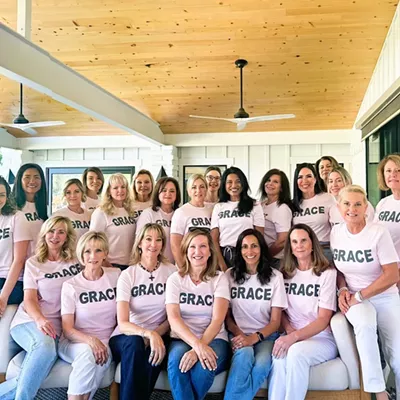"I'm in the race of my life," admits McClure, who has represented the district since 2000. "The lies (Gowan) is giving out about me are vicious."
Gowan responds by saying he only points out McClure's voting history: "I don't attack her personally. I don't know how attacking her record is running a dirty campaign."
Gowan, 36, backs school vouchers; McClure doesn't. "Tax dollars should follow a child where the parents think the student can get the best education," Gowan says. "This is not about (teacher) unions, but about children."
McClure replies: "I don't believe vouchers are a function we should be getting into. I have trouble with putting government money into private schools. I believe we have school choice now (through charters), but we're not giving (public) education enough money."
Concerning taxes, McClure, 64 claims: "I've voted for every tax cut proposed." However, she opposes the movement to legally cap taxes. In addition to supporting more money for education, McClure points with pride to her success in bringing state funds to the district.
For his part, Gowan endorses a property-tax cap, believing people could be driven from their homes if rates continue to rise. "We should send them back to 2003 levels," he argues, thinking Arizona's population growth will prevent problems like those experienced in Colorado when they adopted a similar measure.
If elected, Gowan says securing the U.S.-Mexican border would be his top priority. "It's costing the state almost $2 billion," he declares of illegal immigration, "and I'm deathly afraid someone may come across the border and do something to us."
To prevent that from happening, Gowan told a July 29 debate audience he wanted to see the National Guard patrol the border "with intent." Explaining further in a later interview, he says: "That means giving the Guard the powers they need to secure the border instead of just building fences."
As for how many Guard troops should be there, Gowan responds: "As many as it takes."
McClure doesn't have a problem with that, but understands it will be expensive. "It costs $30,000 a day for 1,000 troops," she says, "so none of this is cheap. But I'll support it if we can appropriate that much money."
At the same time, McClure also wants to focus attention on payday loan companies. Decrying the astronomically high interest rates they charge, McClure hopes to reduce them while requiring a registry of payday loans be kept to ensure borrowers don't obtain more than one at a time.
"There is a need for some form of short-term loan," she indicates, "but I'd like the two-week interest rate limited to 10 percent instead of the current 17.5 percent."
While both Callegari and Paton agree border security is the No. 1 issue facing the district, they have different approaches to dealing with it.
The 59-year-old Callegari emphasizes the need for a coordinated effort which should focus on drugs and stolen vehicles as well as illegal immigration. In addition, he told the debate audience: "Southern Arizona counties need more care and consideration, more money and facilities" in the border struggle.
Paton says: "We need to crack down on the money laundering that's funding coyotes and smugglers. Prosecutors have said they can't get convictions without witnesses, so I'd like to (pass a law) to allow the detention of illegal immigrants to get their testimony on tape."
Concerning the state budget, Callegari doesn't want to see it overextended and hopes an expenditure cap will be put in place that would include a cost-of-living adjustment as well as an allowance for population growth. "The issue is, are (legislators) going to watch out for people's money?"
While he backs the concept of vouchers, Callegari primarily stresses his support for public schools. "We pay more for prisoners, $28,000 to $32,000 a year, than teaching children," he points out.
He also calls comments in the Weekly about his position on housing prisoners in tents "not well researched" and "misleading."
After his first term in the Legislature, 35-year-old Paton has received many endorsements, and he thinks he has delivered on his previous campaign promises. He also says he has consistently opposed vouchers, because they carry with them government regulations of private schools; he believes educational choice already exists.
Paton wants to address the issue of public school teachers' pay, especially starting salaries, and says: "We absolutely need to raise it. We're losing teachers to Nevada, and I want us to retain the best."
On another topic, Paton is awaiting the results of an audit of U.S. Department of Homeland Security money granted to Arizona communities. "I think we'll see massive misspending," he told the debate audience, "and I want to make sure it's spent wisely."
To achieve that goal, Paton is proposing these federal funds be channeled through the Legislature's appropriation process. "We need checks and balances from the state," he says, "because the feds aren't doing a good job of oversight."
The two primary winners will face Democrat Clarence Boykins in the November general election.







